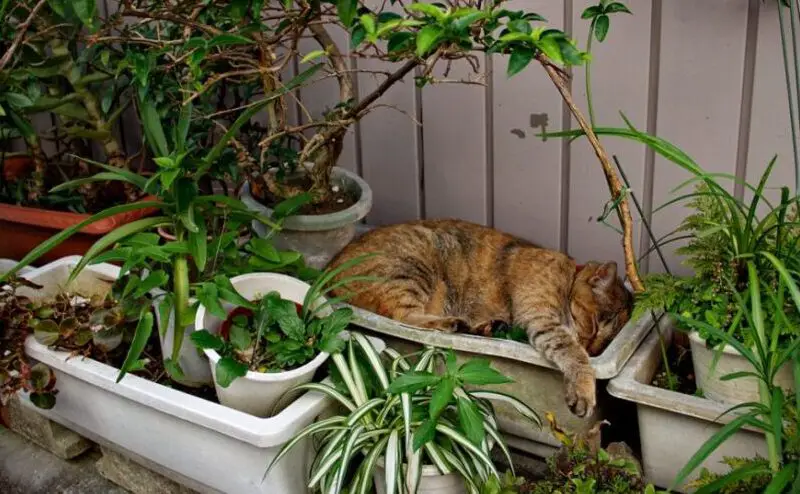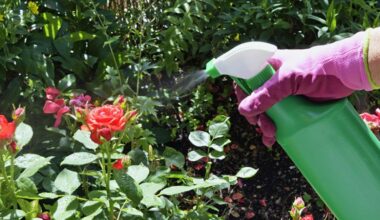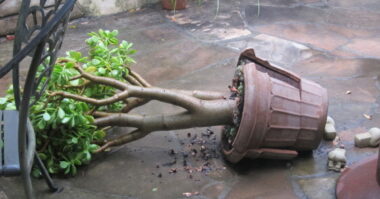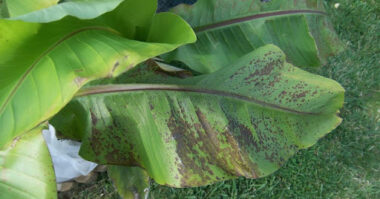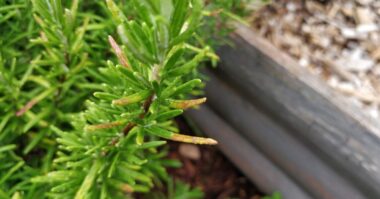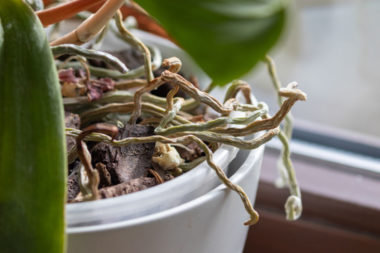Calls for help from worried cat owners or complaints from angry home gardeners: on the forums, one can read many conversations that tell that the cat of the household or the neighbor’s cat urinates in the house plants or garden. But why do cats urinate so much in the plants?
Besides the unpleasant odors, cats that tend to relieve themselves in plant pots often do a lot of damage to the garden by scratching the soil, trampling the shoots and poisoning your houseplants.
Contents
Can cat pee kill plants ?
Cat urine smells terrible, especially if it gets into the potted plant in your living room. And if the cat always chooses the same plant to urinate on, it can even harm the plant. But how do you prevent cat behavior, and how do you protect plants and soil from these unwelcome “visits””?
So there may be complications for the plant if the cat always chooses the same plant to relieve itself, however, in most cases, the plant will not die, it is just unpleasant for it.
Why cats love plants
Whether it’s a flower bed, herb garden, potted plants or indoor plants: many cats seem to be under the spell of the plants in the apartment, on the balcony or in the garden. They love to play with the branches, nibble on the green leaves or dig into the soft soil.
Cats are simply curious and want to explore everything around them, and they have a soft spot for soft materials like potting soil to play in and dig in. So it’s not surprising that some cats use potted plants or flower beds as litter boxes and try to bury their urine or feces in them.
How to prevent the cat from urinating in your plants
Attracting the cat to more suitable places
If your pet persists in urinating in the garden, it is better to let him do so, but in a different way. It may take a long time for him to change his habits. A compromise can be found by planting cat-attracting grasses in a specific corner and placing a litter box or sandbox there. To encourage the feline to urinate in this area, the area must be kept clear and cleaned regularly. In this case, the most effective plants are :
- Catnip;
- Catnip;
- Germander ;
- Valerian.
Plant aromatic herbs to keep cats away from your plantations
If cats love to wander in your plantations, they also have a very sensitive sense of smell. There are certain aromatic plants whose odors strongly repel them: geranium, lemon verbena, rosemary, lavender, thyme … aromatic plants act very effectively as olfactory barriers for cats. They are real natural repellents for cats!
Just plant them in pots near your plants to protect, and the felines will not come to pee there anymore. You can’t plant other plants in your mini urban garden? Don’t worry: another very effective anti-cat trick is to spread repellent aromas in your pots. Use coffee grounds, lemon peel, cracked black pepper or mothballs. Guaranteed effect: it strongly discourages felines from venturing into your plants to pee.
Encourage your feline to urinate in places other than your green plants
Your pet can be trained to pee in specific areas such as the litter box or a litter box. If, however, your cat continues to relieve himself in your favorite green plants, you may want to consider planting herbs that attract him to a specific area!
This will encourage your cat to pee in these areas rather than in your green plant pots. Some of the cat-friendly herbs you can use for this purpose include the famous catnip, catnip or valerian.
Use natural cat repellent mixtures
The best way to prevent a cat from continuing to pee in your plants is to use a natural repellent that effectively repels felines without damaging the plants or harming your pet’s health.
What ingredients should you use for this purpose? How do you make your own cat repellent mixes? Here are our best homemade recipes to spray frequently around your plants that are victims of cat urine to preserve them.
- White vinegar is radical against cat pee. The tomcats hate the smell of vinegar! Add a little white vinegar to a spray bottle filled with water and use it wherever the cat urinates. You can add an infusion of rosemary or lavender to your water-vinegar mixture, which will enhance the effectiveness of your home repellent.
- Water and essential oil mixtures of lavender, eucalyptus, lemon or citronella are also very effective in repelling cats. However, be careful when using essential oils, which can be caustic in contact with the skin or mucous membranes of felines! You can spray this mixture around your plants.
- Cade oil is very practical to keep cats away from “peeing”. Prepare a mixture with half of the cade oil, a little dishwashing liquid and the rest of the water: it’s ready to spray on all feline areas!
On the other hand, never use bleach thinking it will repel cats – it actually attracts them! Because of the high ammonia content of bleach, cats will tend to urinate on it to mark their territory. In addition, they may also ingest it, which would have a disastrous effect on pet health.
How to Train Your Cat to Stop Urinating on Plants
While the protective barriers and deterrents described above will protect your plants in the short term, they probably won’t be enough to make him perfectly clean. Without access to plants, a messy or marking cat will turn to the bed, couch, fence or door frames to urinate. To get your cat to use only the litter box, you must first understand why she urinates in places other than the litter box.
Is your cat urinating in the plants because he’s rejecting his litter box? Perhaps he’s feeling stressed or upset because of some recent changes. Is it really dirtiness, or is the cat marking? Maybe he’s sick? Sometimes urinating is painful for cats because of an illness, and they don’t dare go to the litter box. There can be many reasons why cats suddenly urinate in the plants. There are also many different approaches to getting them to change this behavior.
Therefore, the three potty training measures described below are not appropriate for all cats. If you don’t know what’s behind your cat’s behavior, you should consult a veterinarian and, if necessary, a cat psychologist. The veterinarian will examine your cat thoroughly and can determine if a disease is responsible for the behavior.
